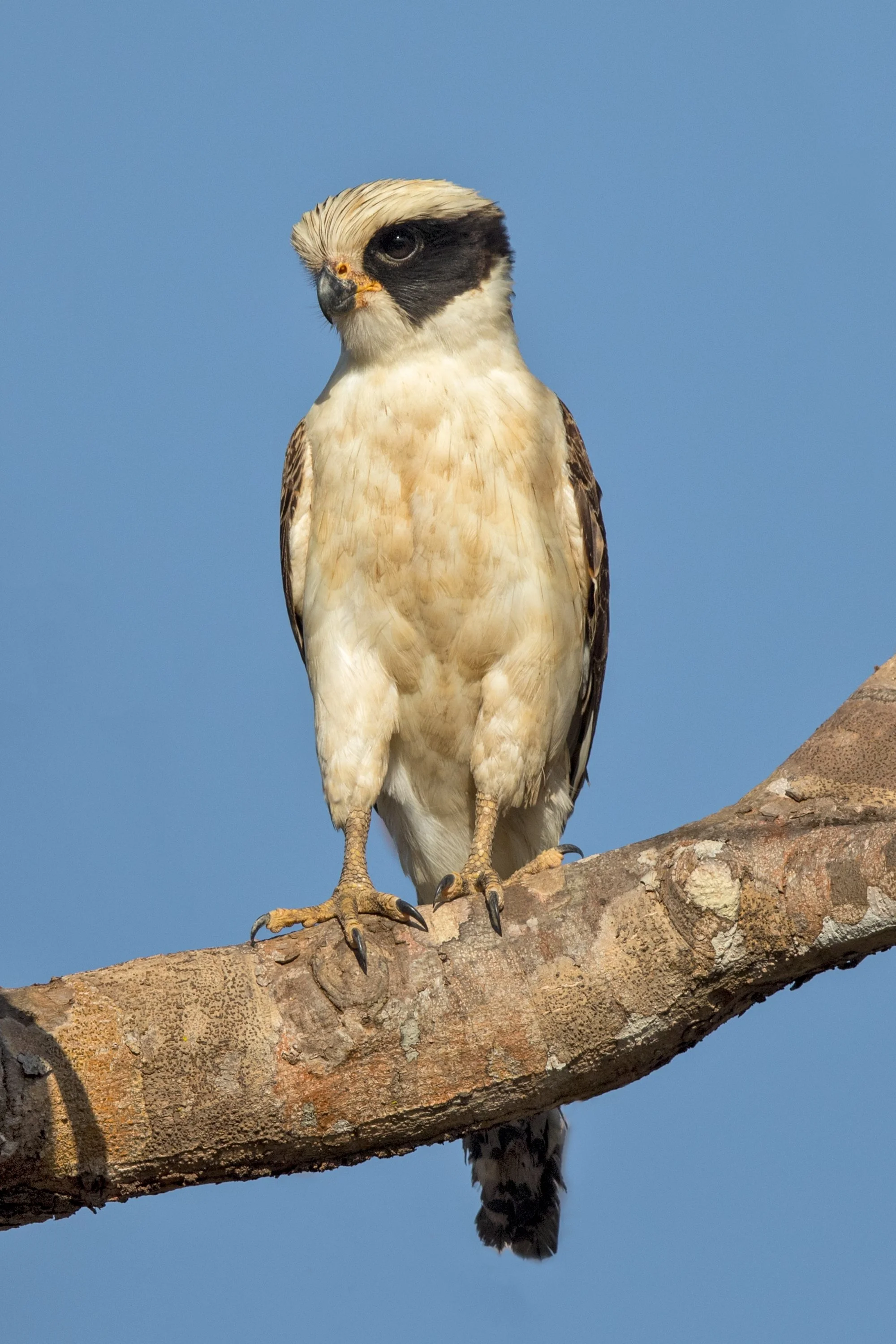“Acauã” (Zé Dantas, 1952)
Another song from “Ainda estou aqui” (“I’m still here”), this one about a bird known as the laughing falcon in English which in the folklore of Brazil’s northeast is cursed so that its song supposedly brings drought, a curse that has come up on this blog before in another baião. Gal Costa sings this version of the song in the movie, but it has been covered by several other artists. As always, brilliant analysis of this song can be found on the Brazuca Sounds podcast, particularly in episode 76 about this movie’s soundtrack.
Listen to the song (Gal Costa version)
Acauã, acauã vive cantando
Durante o tempo do verão
No silêncio das tardes agourando
Chamando a seca pro sertão
Chamando a seca pro sertão
Acauã,
Acauã,
Teu canto é penoso e faz medo
Te cala acauã,
Que é pra chuva voltar cedo
Que é pra chuva voltar cedo
Toda noite no sertão
Canta o João Corta-Pau
A coruja, mãe da lua
A peitica e o bacurau
Na alegria do inverno
Canta sapo, gia e rã
Mas na tristeza da seca
Só se ouve acauã
Só se ouve acauã
Acauã, Acauã
Acauã, acauã constantly singing
During the summertime
Foretelling in the afternoon silence
Calling the drought to the sertão
Calling the drought to the sertão
Acauã,
Acauã,
Your song is distressing and scary
Shut up acauã,
So that the rain can come back soon
So that the rain can come back soon
Every night in the sertão
The rufous nightjar sings
The owl, mother of the moon
The flycatcher and the pauraque
In the winter happiness
The toads and frogs sing
But in the sadness of the drought
You only hear acauãs
You only hear acauãs
Acauã, Acauã
In addition to the large number of bird species in this song, people may notice that the line about frogs and toads has three items in the Portuguese. That’s because in northeastern Brazil, the subset of frogs that are edible have another name: gias.
